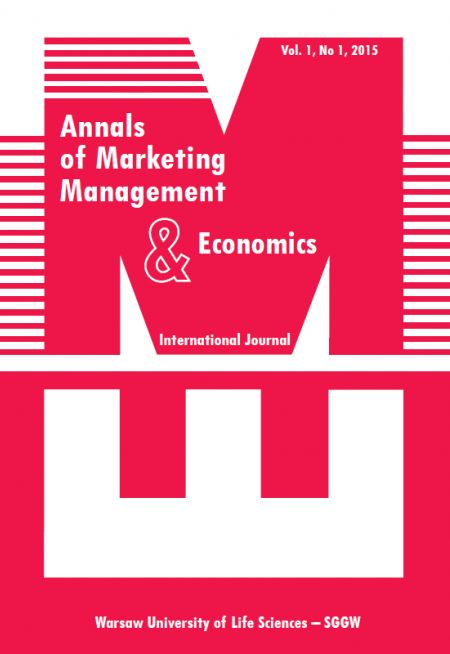Main Article Content
Article Details
Batorski D., 2009. Wykluczenie Cyfrowe W Polsce (The Digital Divide in Poland) (In:) D. Grodzka (Ed.) Społeczeństwo Informacyjne (The Information Society), Studia Biura Analiz Sejmowych Kancelarii Sejmu, Biuro Analiz Sejmowych Kancelarii Sejmu, Warszawa (in Polish).
Bell D., 1974. The Coming of the Post-Industrial Society, Basic Books, London. (Crossref)
epolska - Plan Działań a Rzecz Rozwoju Społeczeństwa Informacyjnego w Polsce na lata 2001-2006 (epoland - Action Plan for the Development of the Information Society in Poland, 2001-2006), 2001. Ministerstwo Łączności, Retrieved From Http://Kbn.Icm.Edu.Pl/Cele/Epolska.Html [Accessed: 14.01.2015] (In Polish).
Furmanek W., 2010. Edukacyjne wyzwania nowej stratyfikacji społecznej (Educational Challenges of the new social stratification), "Edukacja Ustawiczna Dorosłych" 3 (70), 15-25 (In Polish).
Gajdos A., 2008. Analiza struktury zatrudnienia w społeczeństwie informacyjnym (An Analysis of the Structure of Employment in the Information Society), "Zeszyty Naukowe Rola Informatyki w Naukach Ekonomicznych I Społecznych". Innowacje i Implikacje Interdyscyplinarne 8, 1 (In Polish).
Dijk J. Van. The Digital Divide in Europe (in:) The Handbook of Internet Politics, Routledge, London - New York, Retrieved From Https://Www.Utwente.Nl/Bms/Mco/Bestanden/Digital-Divide.Pdf [Accessed: 17.03.2016].
Janoś-Kresło M., 2011. Polskie gospodarstwa domowe w drodze do społeczeństwa informacyjnego (Polish Households on the Road to the Information Society), "Studia I Prace Kolegium Zarządzania I Finansów", 111 (In Polish).
Jastrzębska W., 2012. Wykluczenie cyfrowe - przyczyny, zagrożenia i bariery jego pokonania. Studium przypadku nierówności społeczne a wzrost gospodarczy. Modernizacja dla spójności społeczno-ekonomicznej w czasach kryzysu (The Digital Divide - Causes, Threats And Barriers to Overcoming it - a Case Study in Social Inequalities and Economic Growth - Modernisation for Social and Economic Cohesion in Times of Crisis), Zeszyt 25, Wydawnictwo Uniwersytetu Rzeszowskiego, Rzeszów, 91-104 (In Polish).
Kurenda E., 2004. Słownik historii myli ekonomicznej (A Dictionary of the History of Economic Thought), Oficyna Ekonomiczna, Kraków (In Polish).
Kurowska M., 2013: Wykluczenie cyfrowe zagrożeniem dla społeczeństwa informacyjnego (The Digital Divide as a Threat to the Information Society) Wykluczenie Informacyjne, "Biuletyn Ebib", 145, Retrieved From Http://Open.Ebib.Pl/Ojs/Index.Php/Ebib/Article/View/136/279 [Accessed: 12.01.2015] (In Polish).
Nowak J.S., 2005. Społeczeństwo informacyjne - geneza i definicje (The Information Society -genesis and Definitions) (In:) Społeczeństwo Informacyjne 2005, G. Bliźniuk, J.S. Nowak (Eds), Pti, Katowice, Retrieved From Http://Www.Silesia.Org.Pl/Upload/Nowak_Jerzy_Spoleczenstwo_Informacyjne-Geneza_I_Definicje.Pdf [Accessed: 09.01.2015] (In Polish).
Pizło W., Lesicki M., 2012. Marketing Internetowy Produktów Żywnościowych W Polsce (On-Line Marketing Of Food Products in Poland), Zeszyty Naukowe SGGW, "Ekonomika I Organizacja Gospodarki Żywnościowej", 100, 63-74 (In Polish). (Crossref)
Popiołek M., 2013. Wykluczenie cyfrowe w Polsce (The Digital Divide in Poland), nierówności społeczne a wzrost gospodarczy 32, 310-320, Retrieved From Https://Www.Ur.Edu.Pl/File/50181/24.Pdf [Accessed: 09.01.2015] (In Polish).
Sztompka P., 2002. Socjologia. Analiza społeczeństwa (Sociology. The Analysis of Society), Znak, Kraków (In Polish).
Tomczyk A., 2010. O wykluczeniu cyfrowym seniorów w zinformatyzowanym świecie (On the Digital Divide And Seniors in an Informaticized World), "Zeszyty naukowe rola informatyki w naukach ekonomicznych i społecznych". Innowacje i Implikacje Interdyscyplinarne 10, 1 (In Polish).
Turner J.H., 1998. Socjologia. Koncepcja i ich zastosowanie (Sociology, Theories and Applications), Zysk I S-Ka, Poznań.
Downloads

This work is licensed under a Creative Commons Attribution 4.0 International License.





